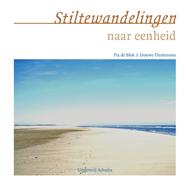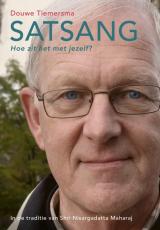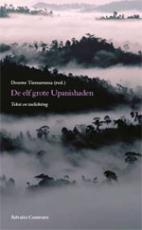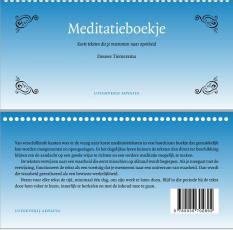Advaita Post - Volume 14 No. 14 - Life lives itself
Advaita Post August 14, 2013
Text satsang
An Advaita talk with Douwe Tiemersma Gouda, April 27,
2005
Life lives itself
Is life possible without desire?
Yes.
But if I hear tomorrow that I have esophageal cancer,
then don't I have a problem?
Yes, that's
clear. But your question is whether there's life without desire.
My desire is that I could be healthy again.
Is there life without desire?
Yes
How?
Life just exists.
Of course. If you look beyond the human world then you see that the
whole natural world flourishes in the spring. Is there any desire in that? No,
it's just a living of life. Take a look at yourself: in the beating of your
heart is there any desire for the next beat?
Lives life itself.
Great. So it's the same with human beings. And then suddenly an 'I' pops
up that wants to continue living and so you have this structure of a limited
identity, an 'I' who separates himself and says: I want to keep living in time.
But isn't that logical?
When you say "it usually happens
that way", then yes, it's logical.
But I imagine that if you went to the doctor tomorrow
and he tells you that you are in an advanced stage of esophageal cancer, you'd
still have a problem.
Death has already given me notice. It already began at birth.
Yes, I can say that too.
No, but seriously. Of course, organisms are mortal. There is a
beginning, blossoming, decay and death. A plant has no desire to keep living
and with a human being that always comes up. What's that about? What's the most
important aspect of man? Isn't that consciousness? But you have to take a look
at the significance it receives, namely as a very limited 'I'-consciousness, an
'I'-think, and then these sorts of things come up. When that consciousness comes
free then once again it's complete and infinite. When that aware being - which
has nothing to do with birth and death - identifies itself with the body then it
says: I'm in this body so I want to physically hold onto this infinity.
For the time being, yes.
Yes, but you see the absurdity. When you identify yourself with
something, for example, with this candle and you say: "I have a sense of my
self-being as unlimited-being, as whole-being, but damn, as a candle I'm
getting smaller and I don't want to burn out." Isn't that a mixing up of
different things? That a candle can be lit and then burn out is quite obvious.
When an organism lives, then there is also an end to that organism. Not of the life
but of the organism. This sense of infinity and this notion of the organism
shouldn't be confused. That is absurd.
But isn't desire also something from life?
No, we have just said: life lives itself.
Then what I said isn't strange?
No unfortunately, it's very common. But you have to see how much
suffering it creates. Some people really get into a panic. Now you see its cause,
which is the coupling of things that can't be coupled. That's the absurdity. You
see it in so many ways, not only with the problem of dying but also when, for
example, a human being suddenly says: "I am immortal and I can do anything." All
the great dictators have said that and that's dangerous. You see the absurdity.
Because a bodily 'I'-person isn't eternal and can't do everything. Why not?
Because fundamentally he's limited. The point is: when you return to that
source of self-being, self-consciousness, you notice that there are no limits to
be found and then you say: people have a sense of infinity, of immortality, and
that's not crazy, so it doesn't have to go away. But you should be careful and
not apply it to something that is inherently transient. You will have to accept
that impermanence. The problem comes when you link them. Of course then there's
a lot suffering and fighting a losing battle with increasingly higher costs for
a month's more extension of life. But fundamentally it doesn't solve anything.
Er is geen tweeheid
als je ontspannen bent
in zelf-bewustzijn
is dat duidelijk.
Boeken
Douwe schreef en redigeerde gedurende zijn leven boeken. Via onze uitgeverij zijn deze nog verkrijgbaar.



